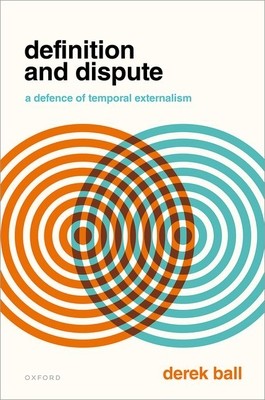
- We will send in 10–14 business days.
- Author: Derek Ball
- Publisher: Oxford University Press, USA
- ISBN-10: 0198906188
- ISBN-13: 9780198906186
- Format: 15.2 x 22.6 x 2.3 cm, kieti viršeliai
- Language: English
- SAVE -10% with code: EXTRA
Reviews
Description
Many of our deepest disagreements turn in part on matters of definition. Philosophers have long discussed the definitions of knowledge, art, truth, and freedom, and social and political questions about personhood, health and disease, marriage and gender are also commonly thought of as turning in part on definitions. This book contributes to our understanding of how we engage with questions and disagreements of this kind. It argues that disputes about matters of definition are not just about the meanings of words or our concepts, and they do not typically involve change of meaning. Instead, it develops a conception of definition on which engaging in an investigation or a discussion helps determine the meanings of our words without changing them; what is determined is the meaning our words had all along. This temporal externalist view - that what happens at the end of our investigation or discussion can play a role in determining what we meant and thought throughout - puts us
in a position to see why typical ways we engage with questions of definition make sense, and are not confused or in need of revision. The book develops this style of view in unprecedented detail, and shows how it helps make sense not only of definitional disputes, but also of disagreements about matters of taste (such as discussions of whether a particular food is delicious, or a certain film is funny).
EXTRA 10 % discount with code: EXTRA
The promotion ends in 21d.11:58:50
The discount code is valid when purchasing from 10 €. Discounts do not stack.
- Author: Derek Ball
- Publisher: Oxford University Press, USA
- ISBN-10: 0198906188
- ISBN-13: 9780198906186
- Format: 15.2 x 22.6 x 2.3 cm, kieti viršeliai
- Language: English English
Many of our deepest disagreements turn in part on matters of definition. Philosophers have long discussed the definitions of knowledge, art, truth, and freedom, and social and political questions about personhood, health and disease, marriage and gender are also commonly thought of as turning in part on definitions. This book contributes to our understanding of how we engage with questions and disagreements of this kind. It argues that disputes about matters of definition are not just about the meanings of words or our concepts, and they do not typically involve change of meaning. Instead, it develops a conception of definition on which engaging in an investigation or a discussion helps determine the meanings of our words without changing them; what is determined is the meaning our words had all along. This temporal externalist view - that what happens at the end of our investigation or discussion can play a role in determining what we meant and thought throughout - puts us
in a position to see why typical ways we engage with questions of definition make sense, and are not confused or in need of revision. The book develops this style of view in unprecedented detail, and shows how it helps make sense not only of definitional disputes, but also of disagreements about matters of taste (such as discussions of whether a particular food is delicious, or a certain film is funny).


Reviews